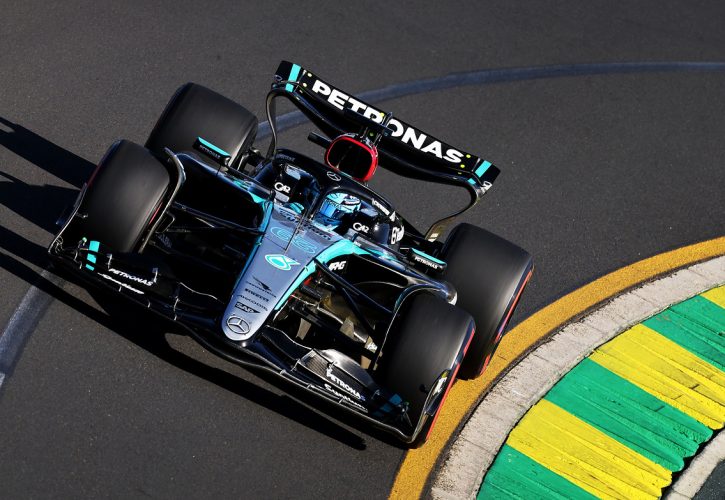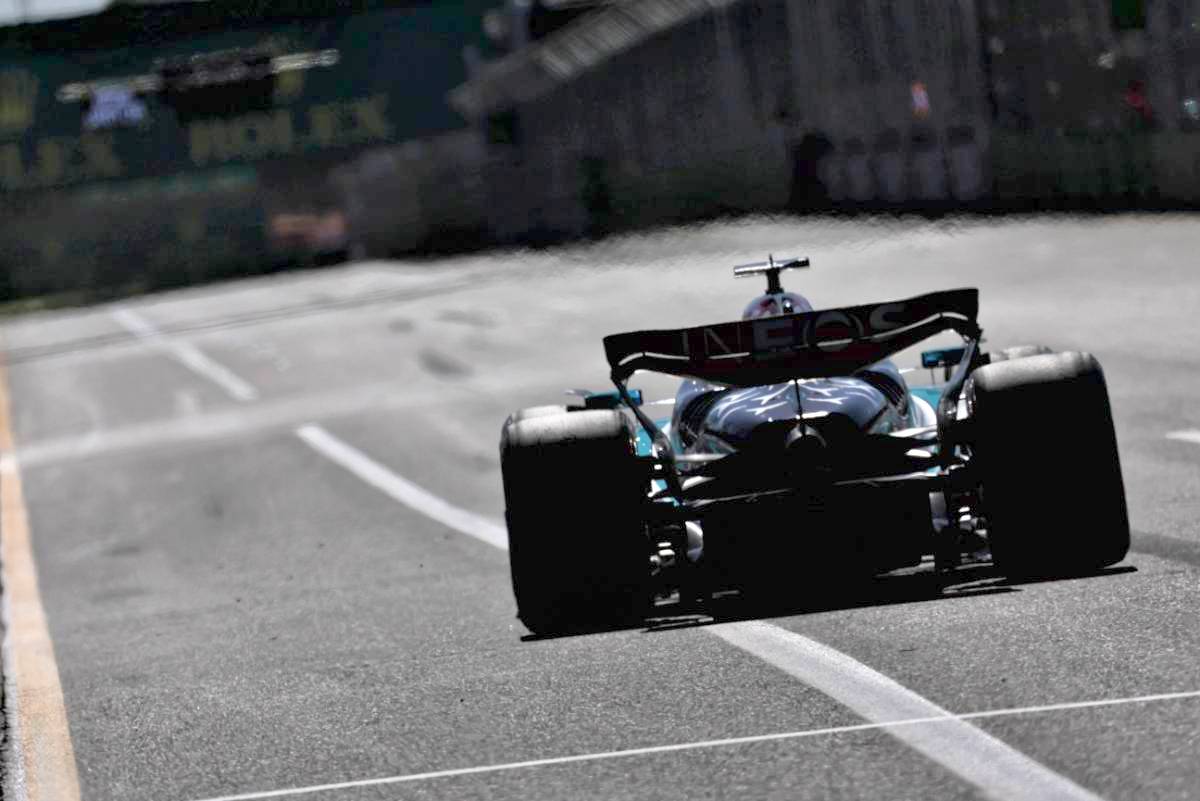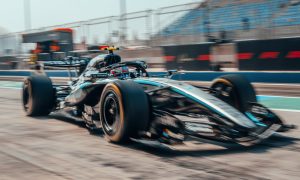
Mercedes technical director James Allison says the Brackley squad has seen a pattern emerge after the first three F1 races of 2024 and uncovered clear clues on why its W15 design has struggled against its rivals.
Mercedes’ engineers worked tirelessly late last year and over the winter to design a third-generation ground-effect car stripped of the faults and deficiencies of its predecessors.
While the team has been partially successful in fulfilling its brief, with the W15 being a more docile car to handle, it is still no match for Red Bull Racing’s new RB20, while it is now also comprehensively outpaced by Ferrari’s SF-24 and to a certain degree by McLaren’s MCL38.
Mercedes’ relative weakness manifested itself at all three of F1’s tracks visited so far, even despite their very different layouts.
However, an engine reliability issue and circumstances conspired to deprive Mercedes of points in Australia last weekend. But the trend that has seen its car become less competitive in warmer conditions was still prevalent at Albert Park.
Read also:
"We are starting to see a pattern emerge that most weekends we have a period in the weekend where we are feeling confident about the car. But then in the paying sessions, in qualifying and the race, that slips through our fingers," Allison explained on Mercedes post-Australian GP debrief on YouTube.
"If we were trying to draw that pattern together then probably the strongest correlation that we can make at the moment, is that our competitiveness drops when the track is warm, when the day is at its warmest and therefore the tyre temperatures rise with those of the track.
"That gives us some clues about what we need to do as we move forward from here. From FP3 to qualifying in Melbourne there was not a set-up change."

Moving forward suggests either making set-up adjustments or implementing more substantial alterations. It’s still unclear for Mercedes how it should approach its solution to broadening its car’s operating window.
“If you know what you're shooting for, if you've sort of identified correctly an accurate assessment of why our competitiveness waxes and wanes, then you can work into the weekend a program that is dedicated towards trying to move the temperature and the temperature balance front to rear in your favour and using all the conventional set up tools on the car.
“That work you can do back here in the factory and the simulation and so on.
"But if you conclude having exhausted the degrees of freedom that you have available to you in setup terms that you still need to go further, well then that gets harder at that point because that will be that there are underlying characteristics in say the aerodynamic map that you’ve engineered or the suspension characteristic that is aggravating that particular feature, and in order to make it really heal up nicely then you would have to change those underlying features.
“It can be either quick and dirty or a little more involved and a bit more complicated.”
Keep up to date with all the F1 news via Facebook and Twitter







